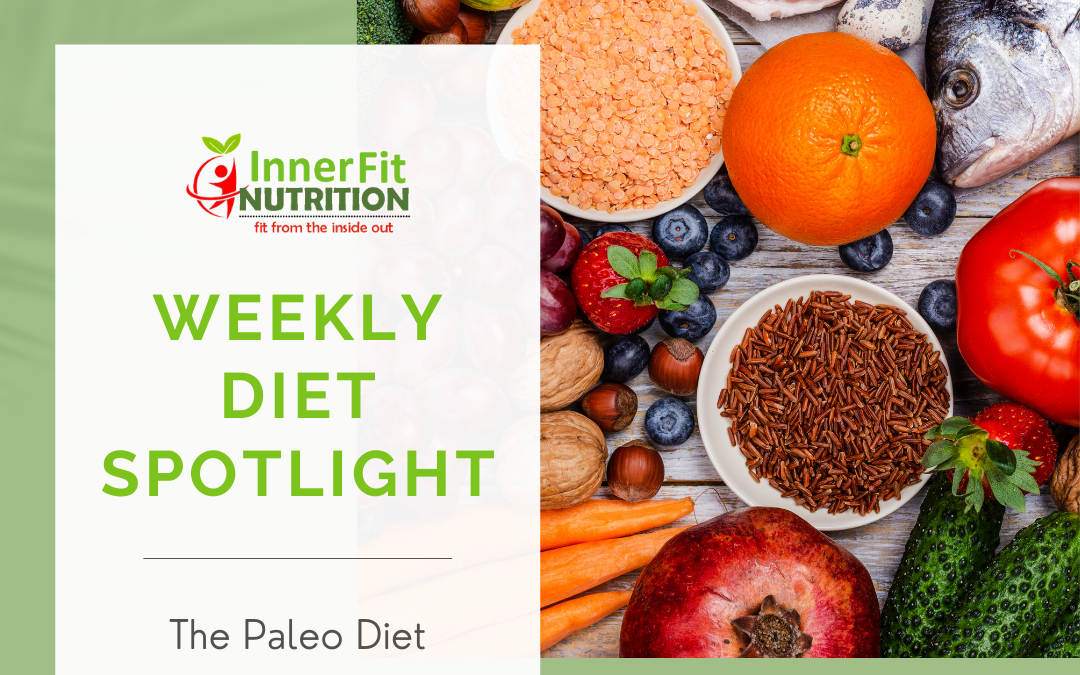The Paleo Diet trend began a few years ago and is still well-known today, however the paleolithic diet dates back to over 2.5 million years ago… so, does it still have merit today?
What is the Paleo Diet?
The Paleo Diet aims to mimic the eating patterns of our ancestral past based on a hunter-gatherer diet. The theory behind this is that through following this way of eating, we revert back to the way we are supposed to eat. This supposedly has played a major part in our genetic makeup as it is how humans have eaten for most of our history.
In juxtaposition, the modern diet that most of us eat today is based off modern farming and commercialism. Modern farming began changing what people ate through providing accessible grains, legumes and dairy products and has digressed to a society where an abundance of sugary and/or high fat palatable convenience foods and takeaway foods are available to us whenever we please.
Essentially, the diet cuts it down to the basics – fruit, vegetables, lean meats, fish, eggs, and some nuts and seeds. Sounds healthy right?
Indeed, the paleolithic diet focuses on wholefoods, however it also excludes some foods that you may not generally deem as ‘unhealthy’ such as grains and dairy products. So, do the pros outweigh the cons? Let’s take a look.
The Pro’s
Firstly, let’s take a look at the potential benefits of a paleo diet and how it may impact your overall health…
1. It Brings the Diet Back to Basics
A diet that promotes the consumption on fruit, veg and meats that are minimally processed is the basis of any healthy, balanced diet in our opinion. Exclusion of high fat, deep fried foods and sugar means that you are eliminating some of the most detrimental foods to our health. Us nutritionists cannot fault this!
2. Promotes the Consumption of More Plants
Again, promoting more plant-based foods (with the exception of no wholegrains and legumes) is another tick of approval. Fruits and veggies are essential in the diet, provide us with so many nutrients and support the health of our gut – what’s not to love?!
3. Associated with Numerous Health Benefits
Switching to the paleo diet has been associated with a number of health benefits including promoting healthy blood glucose, improves insulin sensitivity, lowers blood pressure, improves satiety and may help with weight loss and weight management (1). Take into consideration that this is only when done properly.
The Con’s
Now let’s look at the flipside – why would it not be ideal to go paleo?
1. Unnecessary Exclusion of Certain Foods
Although the paleo diet includes an abundance of nutrient-rich plant foods and unprocessed meats, it also eliminates certain foods such as legumes, grains, and dairy products. This could potentially be of concern as it may mean you are missing out on certain nutrients found in these foods such as fibre, B vitamins and calcium.
2. Promotes the Consumption of High Saturated Fats
The high consumption of saturated fat through coconut oil, ghee and meats such as bacon is potentially concerning as a diet high in saturated fats is a risk factor for many diseases, particularly heart disease. Whilst some meats and saturated fats in the diet can be enjoyed in moderation, excess consumption may become problematic for an individual’s health.
3. Potentially Difficult to Adhere To
Yes, we know – this can almost be applied to any diet. However, adherence to the Paleo Diet may be difficult in certain social situations and may be too restrictive for an individual to reap the long term benefits.
So, Should you Try the Paleo Diet?
The fact is, people have most definitely changed since the paleolithic era and as such, so has their diet. But is that a bad thing?
In comparison to a lot of other diets out there, this one gets the nutritionist tick of approval. There is absolutely no harm in adding more wholefoods into your diet, so long as you are ensuring that you are getting the right nutrients to replace what you are removing from your diet.
If you are considering trying the Paleo Diet, we would highly recommend booking in an Initial Nutrition Consultation to ensure that you are meeting all your nutrients needs. In addition to this, Amanda can teach you which foods you can replace to ensure that you are meeting your needs from a nutritional point of view. Are you ready to take the next step? Click here to book now.
Written by:
Mollie Caughey-Wade,
Clinical Nutritionist (BSc).

